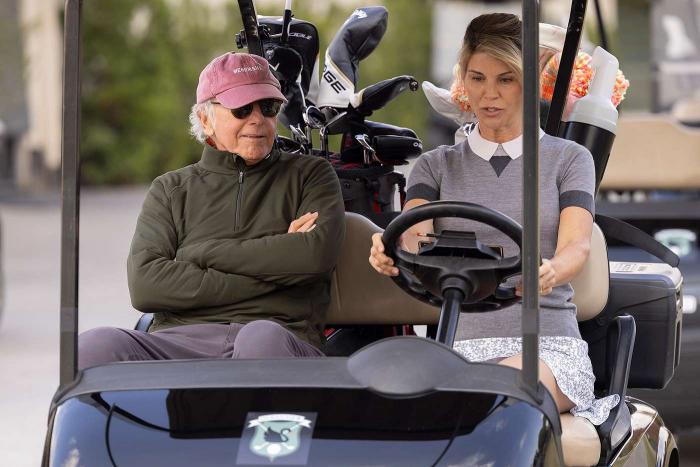

You Don't Get to Tell Me What to Do Ever Again
By Dustin Rowles | Film | November 16, 2009 |
By Dustin Rowles | Film | November 16, 2009 |
Viewed from a certain perspective, I can understand why some people loathe American Beauty; I can even sympathize with them to a degree. Why should we give a shit, after all, about a family of upper-middle-class misanthropic dipshits whose suburban problems really don’t amount to much of anything? Dead-end job, unfulfilled sex life, high-school alienation. Yeah. Welcome to suburbia, assholes. You knew what you were signing up for when you bought that cookie-cutter house and stocked it full of Pottery Barn merchandise. And to say that American Beauty’s views on homosexuality — and in particular Chris Cooper’s Colonel Fitts — were simplistic or even misguided and self-defeating would be an understatement.
But as someone who has always felt a certain sense of envy for the normalcy of suburbia, even as I thumbed my nose at their fat asses and their preprogrammed lives, I unabashedly adore American Beauty. Of course, if I’d been older and as wrapped up in the movie industry as I am now, I could probably see how American Beauty could’ve been the Crash of its day — a decent enough film that had no business taking home the Oscar for Best Picture in probably the best year for movies in the second half of the 20th century (I’d argue it was the best of the nominated films for best picture, but then again, none of the other many films we’ve already covered from 1999 (including Magnolia, Fight Club or The Matrix) we’re nominated).
But as much as it was Alan Ball’s indictment of suburban culture, for people coming of age in 1999 or heading out into the real world, it also served as a remarkable cautionary tale. Take the path most often traveled, and you could end up in your 40s jerking off in the shower and married to a overbearing, controlling woman obsessed with appearances. Culturally speaking, it was also one of the first studio movies to not just vilify homophobia but, perhaps dangerously, give into a certain amount of gay wish-fulfillment — the belief that violently homophobic men are overcompensating to hide their own homosexual desires (a notion borne out, perhaps, in our Republican Congress). It was strangely satisfying.
Lester Burnham (Kevin Spacey) is essentially The Graduate’s Benjamin Braddock, 20 years older and having decided to buy into “plastics,” so to speak. He works a job he hates and goes home to a “bloodless money-grubbing” wife who loathes him and a daughter who doesn’t respect him. His marriage is a sham; his life is a series of repetitive motions; and the apathetic Burnham is on autopilot. That is, until he espies a high-school cheerleader, Angela (Mena Suvari) during a performance; she reawakens not just his libido, but his desire to live. Never mind that Angela is also his daughter, Jane’s (Thora Birch) best friend. Lester quits his job; begins a relationship with pot; buys the dream car from his youth (“I rule!”); and finally stands up to his wife, Carolyn (“Don’t interrupt me, honey”).
The colorful and fantastic supporting characters include Annette Bening’s shrewish Carolyn, who is having an affair with Buddy Kane (in a brilliantly sly performance from Peter “Eyebrows” Gallagher). Ricky Fits (Wes Bentley) is the voyeuristic, pot-dealing next-door neighbor obsessed with Jane — he’s also the film’s benevolent force. Cooper is downright outstanding as Ricky’s dad, a homophobic hard-ass military man with some rage issues and an unhealthy hatred for homosexuality.
But it’s Kevin Spacey’s pitch-perfect performance and Sam Mendes’ surehanded direction (his provocative debut effort) that really elevates American Beauty above your typical suburban doldrums drama. Like most of the characters in American Beauty, Spacey’s Lester is despicable and morally valueless. But there’s so much humor in Ball’s script, and Spacey delivers it so impeccably, that you inexplicably find yourself rooting for him to break free from the sameness chains of suburbia, even if his ultimate goal is to Humbert Humbert a 16-year-old.
It’s not a perfect film. The voice-over narration is not just extraneous, but self-defeating, needlessly giving away the ending in the opening moments of the film. The magical realism fantasy sequences with Mena Suvari and the roses are likewise unnecessary and, at times, distracting. Moreover, the subversive edge of American Beauty hasn’t aged well over the last decade, nor has the profundity of that floating bag, which has fallen victim to the machinations of pop culture.
But the performances are outstanding; the direction is sharp; the cinematography is gorgeous; and the themes still resonate as loud as ever. It’s a stunning and energetic black comedy that miraculously finds the humanity in ugly repulsive characters and turns it inside out, extracting our sympathy with deep humor and a reservoir of melancholy. Even the American Dream is a facade, American Beauty suggests — scratch the surface, and beneath it are the hollow echoes of monotony, denial, and despair. But there’s beauty even in the pathetic smallness of our lives, and American Beauty manages to make us grateful for it.
Dustin Rowles is the publisher of Pajiba. You can email him or leave a comment below.

Lori Loughlin Pokes Fun of Her College Admissions Scandal on 'Curb Your Enthusiasm'
Jon Stewart Forcefully Makes the Case Against the Former President's Patriotism
Is The Royal Family Trying to Make It Look Like Kate Middleton’s Dead?
What’s Old Is New Again: Old Hollywood Glamour Glitters at the 2024 Oscars
Al Pacino Presents Best Picture Oscar, Confuses Everyone
The Dangerous Lie Of 'TradWives'
More Like This
Al Pacino Presents Best Picture Oscar, Confuses Everyone
Kyle Mooney's Horror-Comedy 'Y2K' Goes Too Hard on Kyle Mooney's Sense of Humor
'Imaginary' Almost Sucks
Box Office Report: Kung Fu Sandworms
The 2024 Oscars Were Great Right Up Until the End
Reviews